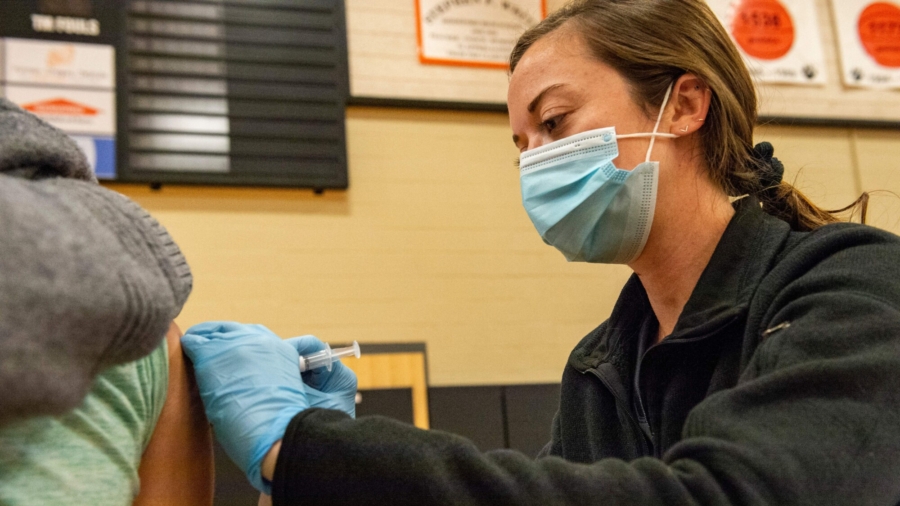A lawsuit challenging Maine’s COVID-19 vaccine mandate for health care workers was revived on May 25 by a federal appeals court.
U.S. District Judge Jon Levy, an Obama appointee, wrongly tossed the case when he ruled in 2022 that the mandate is “rationally based,” judges on the U.S. Court of Appeals for the 1st Circuit said in the new decision.
“It is plausible, based on the plaintiffs’ allegations and in the absence of further factual development, that the mandate treats comparable secular and religious activity dissimilarly without adequate justification,” U.S. Circuit Judge Sandra Lynch, a Clinton appointee, said.
Maine’s 2021 mandate prohibited religious exemptions from the mandate but not medical ones, which was a violation of Title VII of the Civil Rights Act, the health care workers, who were fired for not being vaccinated, said in the suit.
Levy disagreed.
“Title VII d does not mandate that employers provide the specific accommodation requested by an employee, nor does it require employers to provide accommodations that would require the employer to violate state law,” the judge said.
He also said state officials did not violate the U.S. Constitution, including the First Amendment’s Free Exercise Clause, citing how the U.S. Supreme Court has ruled that “whether two activities are comparable for purposes of the Free Exercise Clause must be judged against the asserted government interest that justifies the regulation.”
“A medical exemption to state-mandated vaccines is fundamentally different and, therefore, not comparable to a religious exemption because a medical exemption aligns with the State’s interest in protecting public health and, more specifically, medically vulnerable individuals from illness and infectious diseases, while non-medical exemptions, including religious exemptions, do not,” he ruled.
The appeals court panel agreed that the mandate does not violate Title VII. But the case can move forward on the possibility it clashes with constitutional protections, the judges said.
The Free Exercise Clause states that “Congress shall make no law respecting an establishment of religion, or prohibiting the free exercise thereof” while another part of the Constitution says that “no state shall … deny to any person within its jurisdiction the equal protection of the laws.” Previous court rulings have found a law subject to review if it “treat[s] any comparable secular activity more favorably than religious exercise.”
The mandate “falls in this category, based on the complaint’s allegations that the mandate allows some number of unvaccinated individuals to continue working in healthcare facilities based on medical exemptions while refusing to allow individuals to continue working while unvaccinated for religious reasons,” the appeals court panel said.
Granting medical exemptions could undermine the state interests in the same way that officials said the religious exemptions would, the judges said.
“Of course, it is entirely possible that additional facts might show that the two types of exemption are not comparable. For example (and not by way of limitation), it may be that medical exemptions are likely to be rarer, more time limited, or more geographically diffuse than religious exemptions, such that the two exemptions would not have comparable public health effects,” they said.
Lawmakers in Maine in 2019 eliminated religious exemptions for required vaccinations and voters the following year rejected a referendum that would have reestablished the exemptions, meaning the COVID-19 vaccination requirements were treated the same as other vaccination requirements.
Lynch was joined in the 3–0 ruling by Circuit Judges Bruce Selya, a Reagan appointee, and Lara Montecalvo, a Biden appointee.
“We look forward to taking on Gov. Janet Mills and her administration regarding the clear violations of the U.S. Constitution,” Mat Staver, founder and chairman of Liberty Counsel, which is representing the workers, said in a statement.
“This administration operates as though it is above the law. No one is above the law. The rights guaranteed by the U.S. Constitution cannot be set aside,” he added.
Maine officials have not yet commented on the ruling.
Judges sent the case back to the lower court for further proceedings consistent with their ruling.
From The Epoch Times


